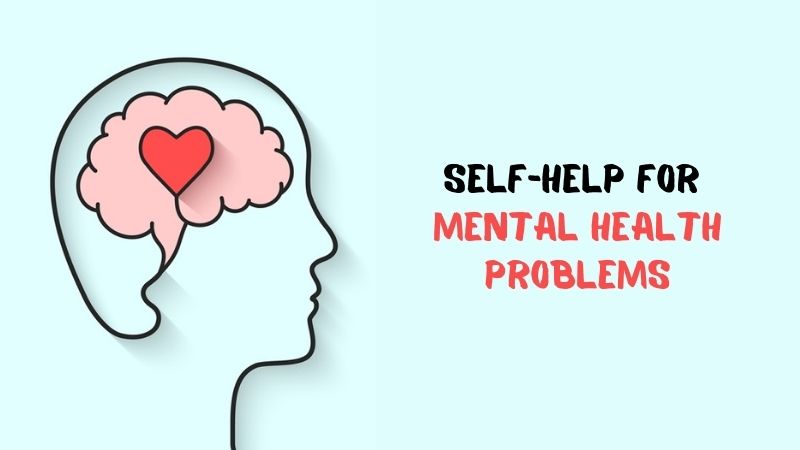
WHO defines self-help as the ability of individuals, families and communities, on their own or with the support of health workers, to promote health, prevent disease, maintain a healthy body, and cope with illness and disability.
The concept of self-help is based on the recognition of the active role of people in protecting their health in areas such as healthy lifestyles; disease prevention and treatment; self-medication; providing assistance to persons in need of care; as well as rehabilitation and palliative care.
What are self-help measures and who can apply them?
Self-help measures are scientifically developed quality medicines, devices, diagnostics and / or digital solutions that can be used independently or under the direct supervision of a healthcare professional, partially or completely outside the official channels of receiving medical care. These include, inter alia, self-administered injectable contraceptives, self-sampling systems for HPV diagnostics, and self-testing kits for HIV.
Some of the listed tools can be quickly studied and applied independently and without much difficulty the first time. Other products can be prescribed for independent use only after careful study under the guidance and support of a specialist. Self-help measures should be applied in collaboration with healthcare professionals and with the support of healthcare institutions that are responsible for the patient.
Self-help measures to protect health are applied by patients and their caregivers. Their use can be explained by considerations of a positive nature, such as convenience, cheapness, autonomy, greater alignment with values or everyday life, and the desire to be able to choose between different measures. On the other hand, the choice in favor of self-help measures for health issues may be dictated by the desire to avoid interaction with the health system due to poor quality of services (for example, neglect in health facilities) or their lack of accessibility (for example, in humanitarian emergencies). In the latter case, self-help measures to protect health are especially important, since often the only alternative to such measures is a complete lack of access to health care.
The magnitude of the problem
Marginalized and vulnerable groups such as the poor, indigenous peoples and migrants are often denied access to quality health care. In addition, with an expected shortage of 18 million health workers by 2030, a projected decline in international funding for health and the fact that one-fifth of the world’s population is currently affected by humanitarian crises, it is imperative to find innovative strategies for delivering care that go beyond the framework for traditional forms of work in the health sector.
Oftentimes, self-help interventions are most beneficial for health care workers, as they enable them to serve more patients and use their clinical skills where they are needed most.
Restrictions
Before recommending the use of specific health self-help interventions within health systems, it is important to obtain strong evidence that they have a beneficial effect on health and do not harm the patient or the general population.
When promoting such measures and stimulating demand for them, potential issues need to be considered, such as the reckless use of unregulated or inadequate products, the dissemination of inaccurate or unclear information, and the inability to reach out to healthcare professionals and/or healthcare facilities. One of the most pressing challenges today is to ensure that the applied solutions are available to the people who need them, without creating an additional financial burden.
Equity, human rights, gender equality and the social determinants of health are fundamental to the application of both self-help measures and all other health services. It is essential to create a safe and supportive environment to support those who are unaware of their right to health and lack access to the services they need, including vulnerable, marginalized, in conflict with the law, socially and economically disadvantaged groups, health indicators which are the lowest in the world.
Global effect
Self-help for health is a solution that contributes to achieving all of the WHO 3 billion goals to expand universal health coverage, protect people in humanitarian emergencies, and promote health and well-being. By making the following additional sexual health interventions available, significant improvements in health outcomes for individuals, communities and communities can be achieved.
Self-injecting contraceptive use has been shown to reduce unwanted pregnancies each year among 74 million women and girls in low- and middle-income countries.
Improving screening rates for HPV (human papillomavirus that causes cervical cancer) by self-sampling can increase the number of new cases of cervical cancer detected each year and reduce the deaths caused by it.
Self-testing for HIV helps ensure timely access to needed care and treatment and helps to reduce deaths from AIDS-related diseases, which killed 770,000 people last year.
Self-sampling for testing for sexually transmitted infections (such as chlamydia and/or gonorrhea) can improve testing rates and treatment-seeking.
Self-medication abortion can reduce the number of women who die every day as a result of unsafe abortion.
WHO activities
WHO recognizes the value and possible useful role of self-help measures for protecting health within health systems, and recognizes the rapid development of services, behaviors and types of information that can be accessed by users. WHO’s position on self-help for health is to support and promote these innovative approaches as they accelerate the achievement of universal health coverage and the Sustainable Development Goals.
WHO’s first consolidated guide on self-help for health is an important step forward in reorienting health to people and providing quality self-care while maintaining the responsibilities of the health system.
